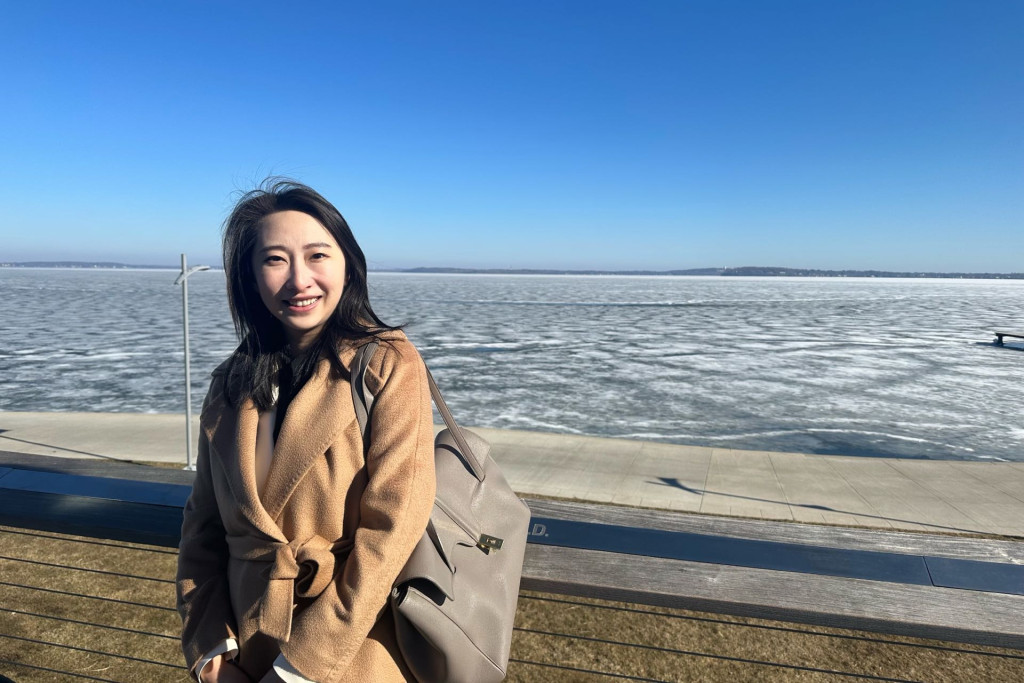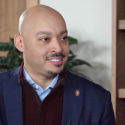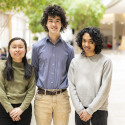New Faculty Focus: WenWen Cheng

Wenwen Cheng
Wenwen Cheng has joined the Department of Planning and Landscape Architecture
Hometown: Taiyuan, Shanxi province, China
Educational/professional background: Bachelor and Master in Landscape Architecture, Ph.D. in Urban and Regional Science
What is your field of research, and how did you get into it? My research focuses on microclimatic landscape design in multiple scales, including urban heat island and environmental justice, sustainable communities, human thermal comfort and heat stress. I’m interested in how these invisible climatic elements shape our environment and affect our behavior and feelings.
What attracted you to UW–Madison? It is a world famous university located in a beautiful city. The research areas of my colleagues in our department are highly intriguing and closely aligned with my own research focus.
What was your first visit to campus like? It was amazing to see the lakes during my first campus visit (photo above was taken during that visit).
The pandemic forced us all to reconsider many things we took for granted. Is there something you’ve learned that has helped you through these challenging times, personally or professionally?
One important lesson that many people have shared is the importance of adaptability and resilience, for both the individual and community. Additionally, it has underscored the value of community and connection in supporting one another through difficult times.
From a professional perspective, it’s crucial to communicate our thoughts and concerns with colleagues and collaborators. While in-person meetings may be limited sometimes, efficient communication, strong mutual support, and a deep understanding of each other’s roles and challenges are essential pillars that allow us to work as a team.
Do you feel your work relates in any way to the Wisconsin Idea? If so, please describe how. How communities’ physical environment can be strategically planned and designed to withstand the current and future effects of climate change, especially for underserved communities, is one of the key aspects of my research. For example, existing heat vulnerability assessments are from a top-down policy perspective, neglecting the viewpoints of different stakeholders, especially vulnerable populations. In one of my projects, through community workshops organized in heat-vulnerable communities and using a decision-making support system, we promoted meaningful conversations among stakeholders to identify problems and balance possible solutions in terms of heat mitigation in the underserved community.
What’s something interesting about your area of expertise you can share that will make us sound smarter at parties? Children prefer to stay in cooler spaces compared to adults! Adults feel cold but they feel OK. So, it’s worth thinking before you put on sweaters for your kids. They may not need them just because you feel cold.
Hobbies/other interests: Piano, dancing, drawing, playing with my daughter



